Tactical Breach Wizards: A Magical Turn-Based Tactical Game Full of Charm
295
2024 / 09 / 04
Sony announced that the newly launched hero shooter game Concord will officially shut down on September 6, 2024. Players who purchased the game are eligible for a full refund across all platforms. Imagine taking an unsold Overwatch disc, stuffing it into Guardians of the Galaxy Star-Lord Peter Quill’s armpit—that’s roughly how Concord feels to play. As a competitive shooter, Sony’s sci-fi game plays it safe in design. Its vibrant scenes feature distinct characters, but the skill-based PvP combat doesn’t explain why these characters are fighting each other when they were allies just moments before in the cutscenes.
Although Concord isn’t the most innovative game, it doesn’t affect how fun it is to play. I’ve spent 40 joyous hours with the game, enjoying its professional-style gunplay. This solid foundation greatly enhances the game, but its lack of game modes and unremarkable gameplay means there’s plenty of room for growth in this live-service title.
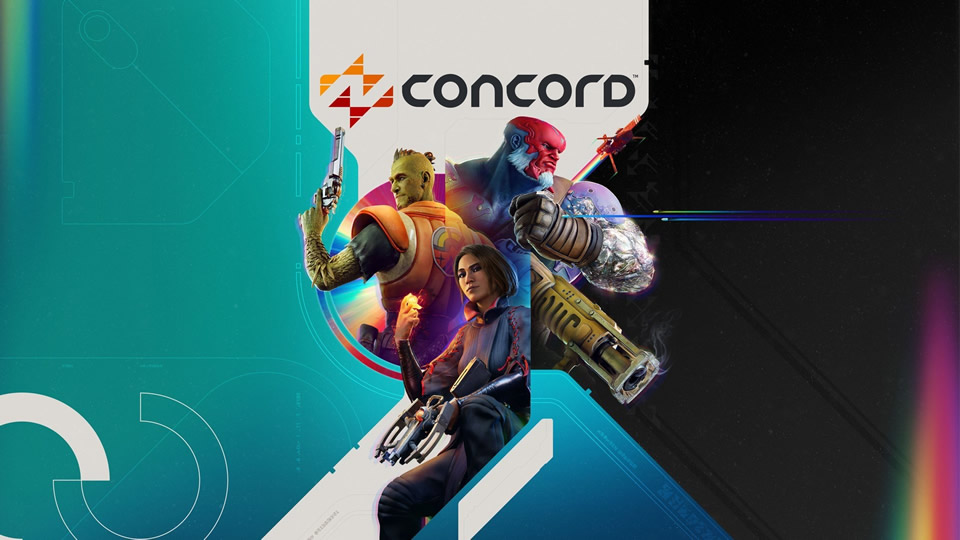
You and your teammates select superpowered heroes to form a 5-person squad, each with unique strengths, weaknesses, and special abilities. You’ll face off against another 5-person team in various game modes. Available modes include standard Team Deathmatch, a Kill Confirmed mode called "Bounty Hunt," an Attack-Defend mode called "Payload," and a Control Point mode known as "Point Capture." While none of these modes are original, a solid gunplay experience and outstanding character design make familiar game modes less of an issue—and Concord nails both.
Concord wisely limits its weapon selection: each character has only two default weapons, and further customization is unavailable. However, the upside is that each weapon feels great to use, with no weapon feeling redundant across characters. The elderly Duchess wields a submachine gun, making her deadly at close range, while stealth and tactical expert Var rely on a sniper rifle to pick off enemies from afar.
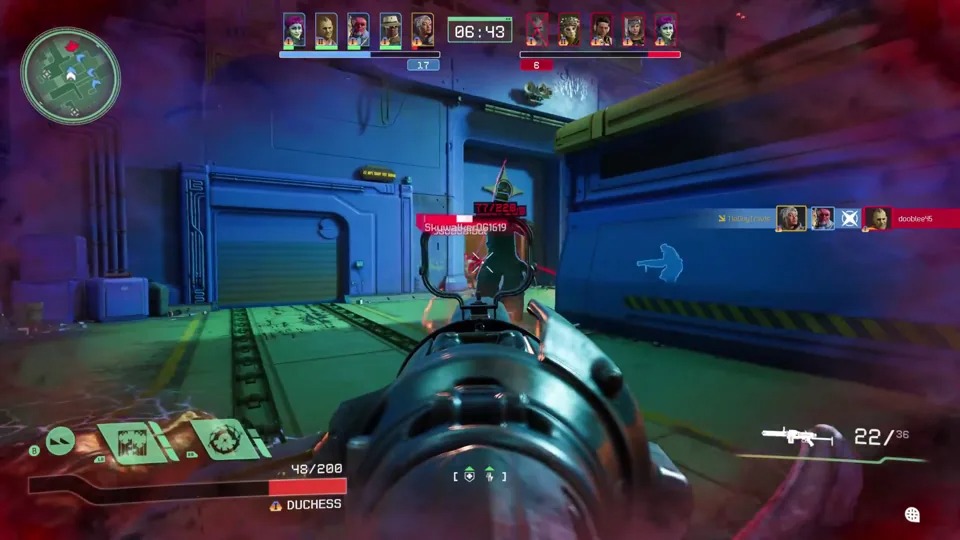
Not all characters were easy for me to adapt to at first. For example, the vacuum weapon of the cleaning robot 1-Off can change the position of both friend and foe on the battlefield, and Buzz’s throwing knives and melee style took some time to get used to. However, after spending time with them, I grew to appreciate the well-balanced and diverse roster. Once you familiarize yourself with the skills, all 16 heroes become quite handy, whether they’re damage-dealers, support, or tanks, and each brings unique, fun elements to the team.
Likewise, the skill design that complements these weapons is excellent, with a wide variety of effects and short cooldowns. Depending on your hero, the right skills can turn the tide of battle. Haymo, floating mid-air, can use a fireball to blind opponents and deal ongoing area damage. Starspawn, a destructive ogre, can charge enemies quickly and slam the ground to deal massive damage.
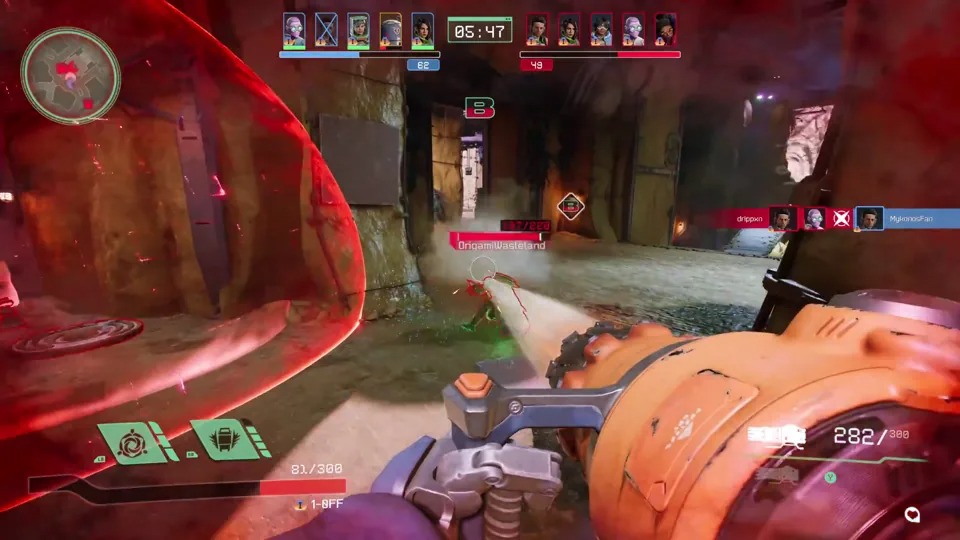
Not all characters are entirely original, like Tayo, a typical soldier character with skills like smoke grenades and cluster grenades. However, these familiar types are few. Learning each hero, using their abilities to dominate the opposing team, and thriving in the chaos of battle make the game fun even after 30 matches. Not all hero shooters can offer this experience.
Mastery of every hero is essential because Concord innovates within the genre by having unique match mechanisms in competitive play. Unlike the brawl mode where you can pick any hero (as long as someone else hasn’t chosen them), competitive matches operate differently.
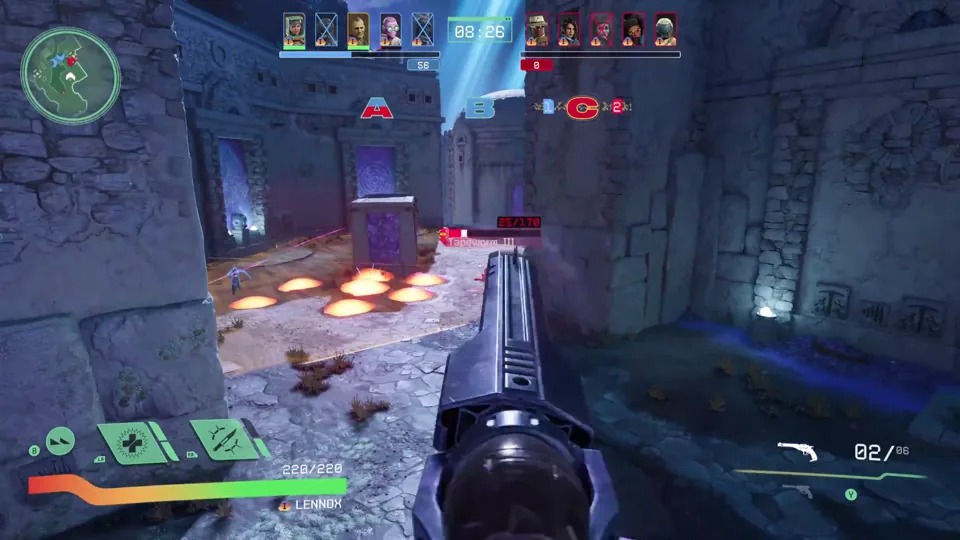
In competitive play, if you win a round with a hero, you can’t pick the same hero for the next round. Since matches follow a best-of-seven format, this forces you out of your comfort zone, requiring mastery of at least four heroes. This design not only encourages players to diversify their hero pool but also emphasizes communication during the pre-round planning phase. As the available hero pool shrinks, it’s crucial to communicate with teammates to build a viable team composition for the next round.
Concord also has an interesting design that complements its unique match mechanism: character variants. Each hero has several variants with distinct skills and appearances. These variants can be unlocked by achieving specific objectives during matches. For instance, gunslinger Reynos usually reloads by dodging, but his variant loses this ability while gaining extra ammo for all weapons.
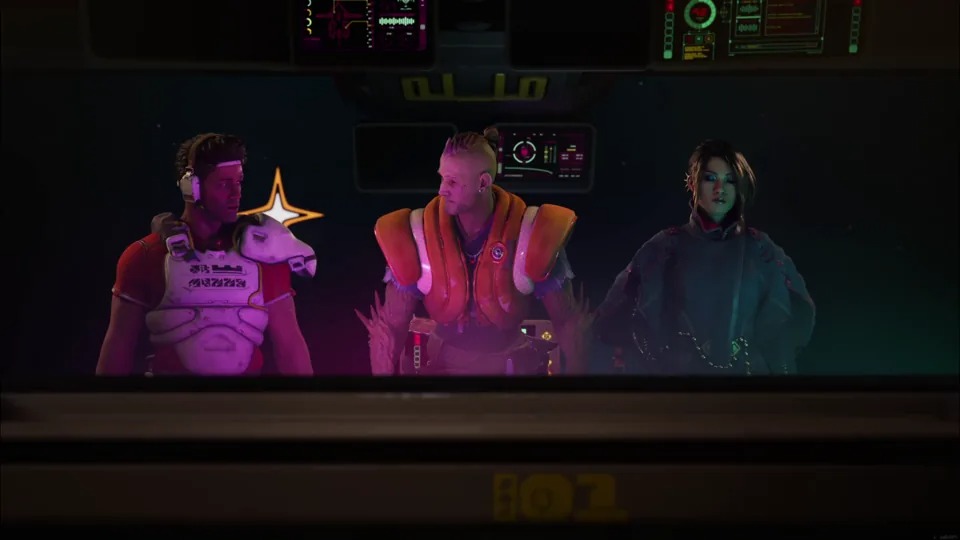
Each hero currently has five different variants, each with slight differences. This system adds more strategic depth to battles, especially in competitive matches, since each variant is treated as a separate hero, theoretically allowing you to use the same hero across multiple games.
With 16 charming characters, you might think Concord’s story is crucial, but unfortunately, it’s one of the game’s weakest points. Currently, there are only two cutscenes providing background lore. Concord takes a drip-feed approach, slowly revealing bits of the story to players. The game features a star map with various nodes where you can read about locations and characters. I spent considerable time exploring this large "encyclopedia."
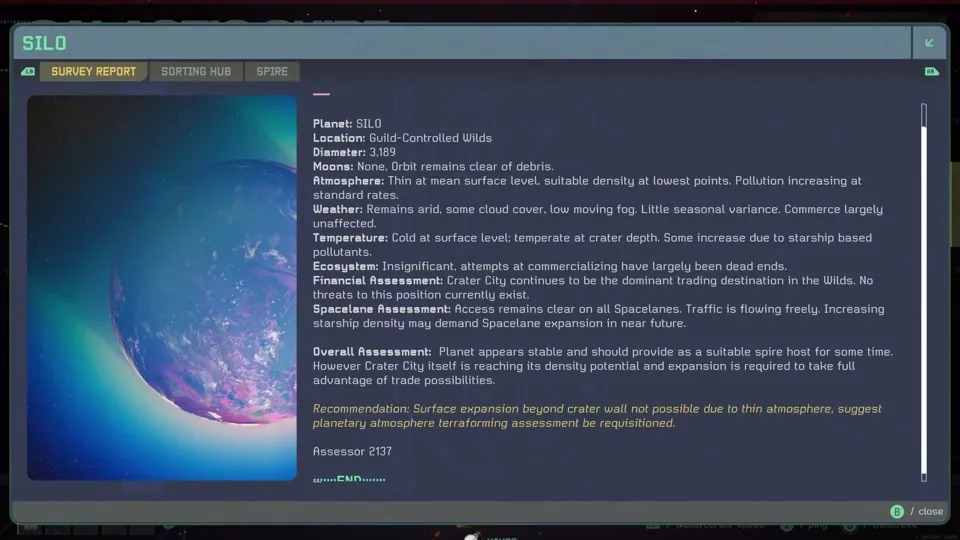
Although the text quality is high, it doesn’t add much to the in-game narrative, and I worry that I won’t return to read it often. Creating vibrant characters with an empty backstory is common in hero shooters today, but it doesn’t improve the situation here. If developer Firewalk wants to build a long-term game universe, it could become a selling point. However, for now, the story is too thin and disconnected from the PvP gameplay, squandering the potential of its rich characters.
While Concord's game modes aren’t as creative as its character design, they aren’t original. Among the six playable modes, none stand out. For example, "Signal Hunt" is just a King of the Hill mode, where both teams compete to control a moving objective on the map. The "Control Point" mode requires players to capture three static objectives. The lack of originality in gameplay highlights one of Concord's biggest problems—it lacks a unique mode that sets it apart from other hero shooters.
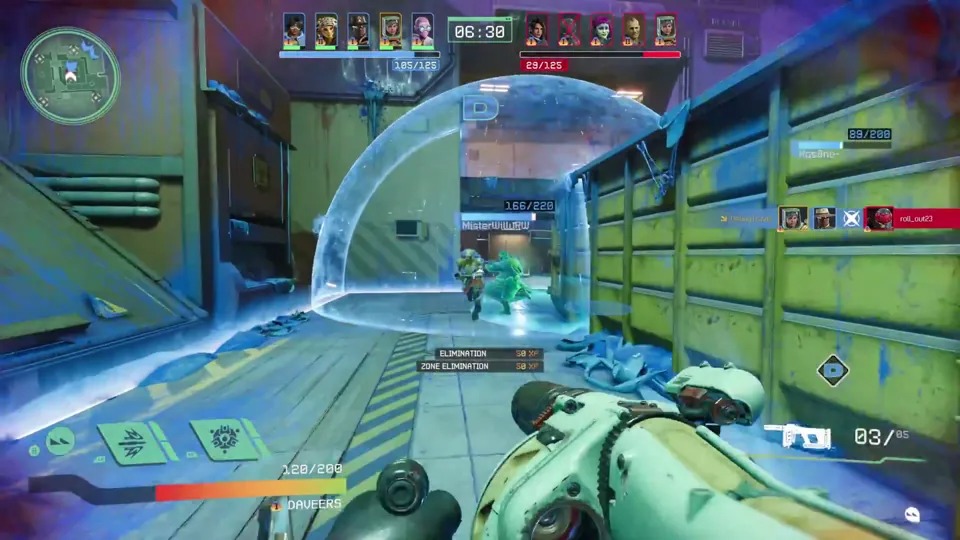
For better or worse, Overwatch made its Payload mode iconic, even though it was derived from Team Fortress 2. Concord, however, features some of the most common and unoriginal modes. Before even playing, I could predict how each mode would feel. The lack of innovation in gameplay worsens the game’s struggle to stand out among its competitors.
The 12 well-designed maps are a step up from the modes, and I thoroughly enjoyed exploring Concord's battle arenas. Each map features winding hallways, cover systems, and complex paths that take time to master. Some routes are accessible only to high-mobility heroes due to vertical limitations.
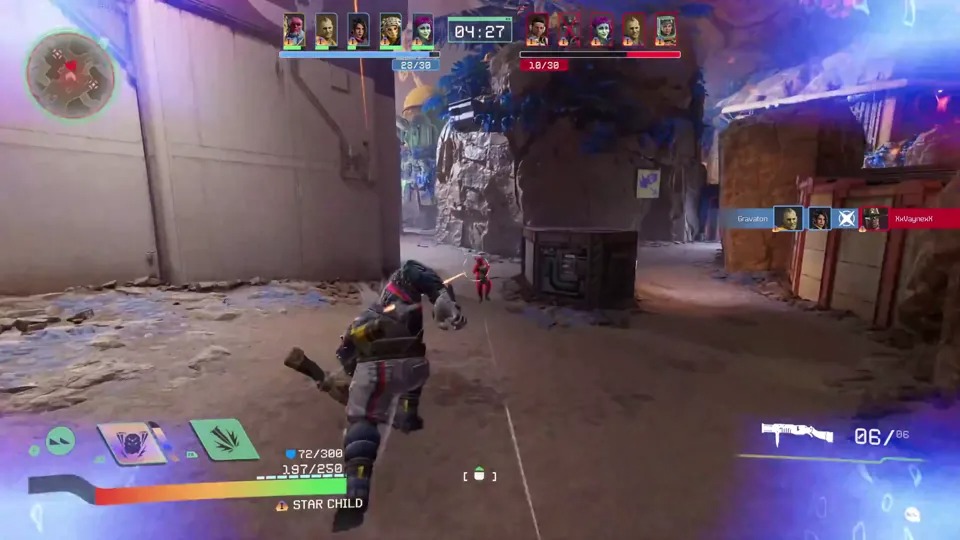
On the aquatic planet Leviathan, you’ll find massive sea creature carcasses on the map "Flooded," while on "Electric Hazard," you’ll navigate maze-like corridors. On the dying planet Arcana, you’ll fight among giant monster skeletons. My only complaint about the maps is that they feel too large for 5v5 combat, leading to long respawn times before re-engaging in battle. Other than that, the experience of learning and mastering each map is fantastic.
Currently, one feature is not yet ready: Firewalk plans to launch a cosmetic shop soon. Like other games in the genre, players will be able to purchase skins and other virtual cosmetics with real money. While this is a standard monetization model, the key issue is how much the developers will value players who want to unlock cosmetics through gameplay. Many live-service games lock the best cosmetic items behind paywalls. Since the shop won’t be available until the first season, we can’t predict how this will play out. For now, it’s nice that players can unlock items through gameplay without encountering players flaunting extravagant skins purchased with real money.
Concord's Player Base Issues While the number of players doesn’t always correlate with a game’s quality, it does affect matchmaking for a multiplayer shooter like Concord. It’s well-known that Concord didn’t launch with an optimistic player count, at least on PC.
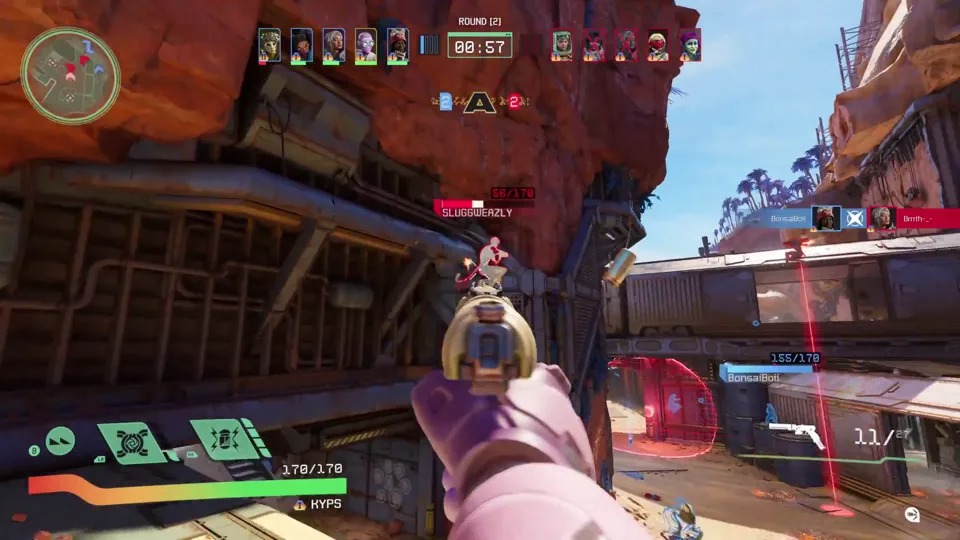
In the first week after launch, I occasionally experienced longer matchmaking times, likely due to the low player base. To be clear, most of my waits were under a minute, but sometimes, when trying to queue for competitive matches, I had to wait five minutes, eventually giving up to play more populated modes.
Again, the current player base isn’t a significant issue and hasn’t heavily impacted my match experience. However, since a multiplayer game’s peak player count is usually at launch, Concord's player numbers may decline over time, potentially affecting future gameplay experiences.
Summary While Concord isn’t the most innovative or content-rich hero shooter you can play, its competitive gunplay, 16 unique characters, and 12 well-designed maps make it a game with the potential to remain competitive for months or even years. Its solid FPS foundation makes up for the nearly nonexistent narrative and lack of a signature game mode, and I’ve sunk dozens of hours into its PvP gameplay. If Firewalk addresses these issues in the long-term live-service plan, Concord could grow into a distinctive shooter. But for now, it’s fun enough that I recommend giving it a try.
Pros:
Excellent competitive gunplay experience
16 unique characters
12 high-quality maps
Cons:
Lacks a well-developed backstory
Lacks distinctive game modes
